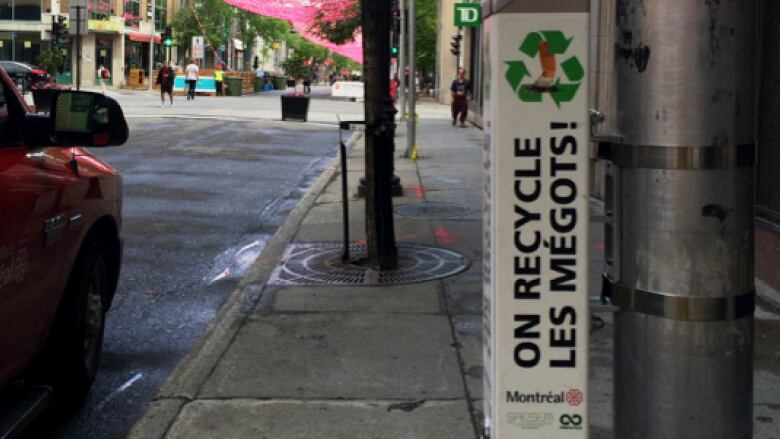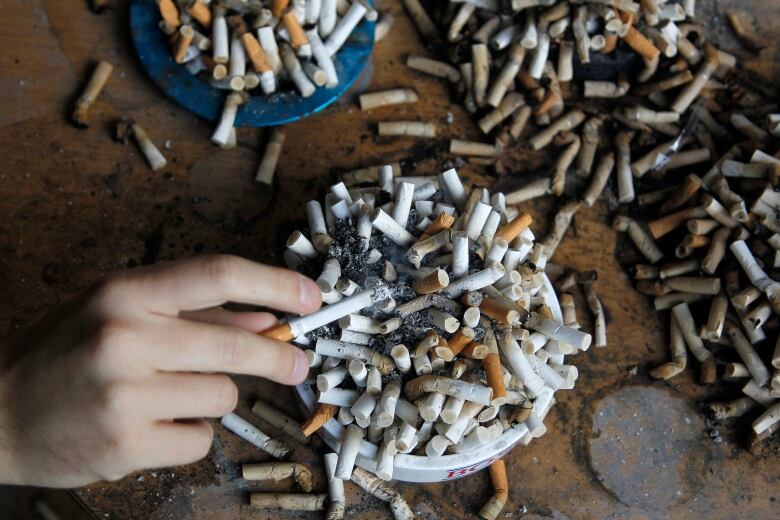Cigarette butts recycled in Montreal pilot project
New bins installed in Gay Village, Old Montreal already redirecting 10,000 butts a week from streets, sewers

An environmentalaction group in Montreal wants to rid the streets of a perennial eyesore and turn them into a reusable resource.
Since June, theSocit pour l'action, l'ducation et la sensibilisation environnementale de Montral, or SAESEM,has installed dozens of binsfor cigarette buttsthatare then shipped toa recycling plant near Toronto.
So far, there arebins along Ste-Catherine Streetin the Gay Village and parts of Old Montreal.
SAESEM claims to have already redirected10,000 butts a week from going ontothe streets and into city sewers, and says it can double the number by March, when the pilot project ends.
"Beyond the numbers, it's about allthe butts that are not staying on our streets," said Raphael Nguyen, project development coordinator for SAESEM.
- No butts about it, terraces will be smoke-free starting this week
- Cigarette butt recycling launched in Vancouver
Here's how it works: every week SAESEMcollects the butts from the bins and ships them to TerraCycle, a company near Toronto that does the recycling.
There, paper, ash and tobacco get turned intocompostwhile the plastic in the filters gets mixed with otherrecycled plasticand made into new products.

TerraCycle pays for the shipping but keeps all the profits from the sale of therecycled plastic.
Montreal is the third city in Canada to start recycling cigarette butts, after Toronto and Vancouver, which started its program in 2013.
Nguyen hopes the program will expand beyond the Village and Old Montreal next year.
According to a study published by the National Institutesof Health in theU.S., sixtrillion cigarettes are smoked every year worldwide, and about 4.5 trillion are discarded into the environment.
Cigarettefilters are made from cellulose acetate, a plastic, and takefrom18 months to 10 years to decompose, according to research from Longwood University in Virginia.












_(720p).jpg)


 OFFICIAL HD MUSIC VIDEO.jpg)
.jpg)



























































































